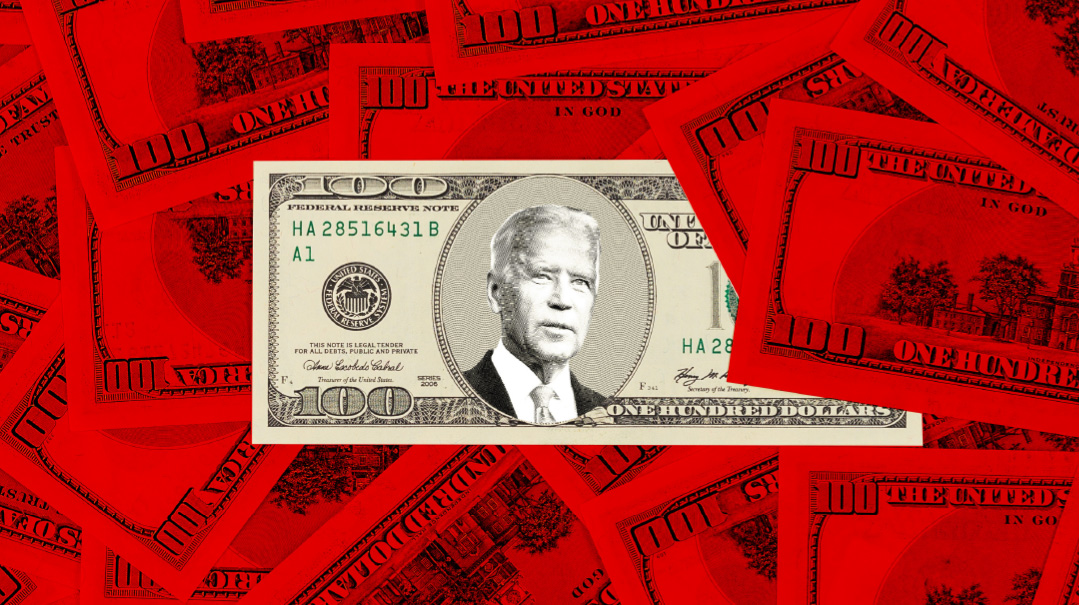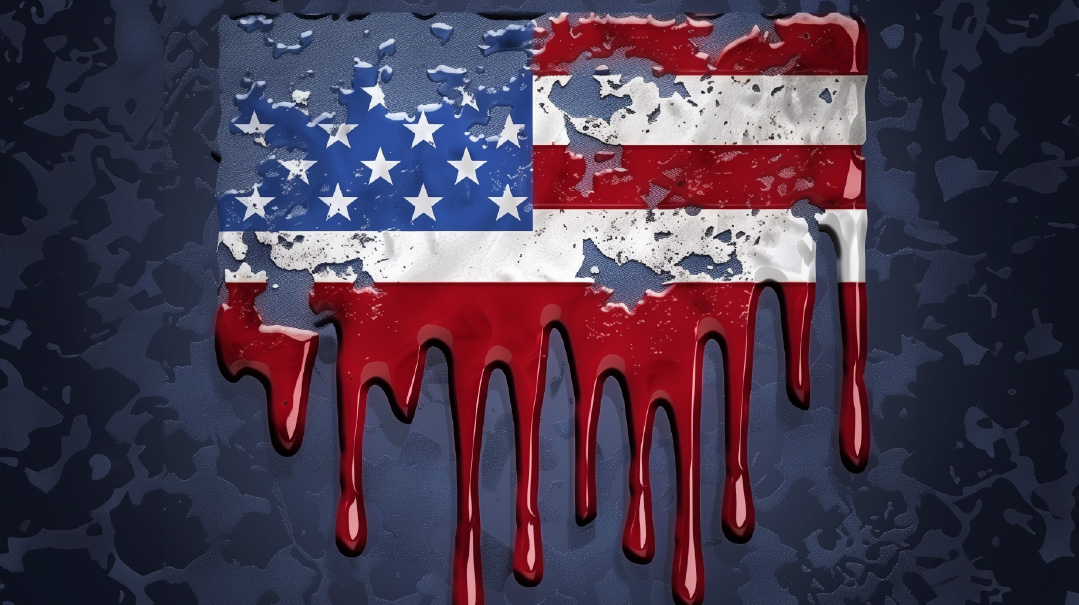In Bidenomics We Trust?

We asked three economists: What is the so-called "Bidenomics", is it working, and do voters feel the difference?

Ever since President Joe Biden confirmed his intention to seek re-election, his advisors have rallied around the concept of “Bidenomics” as a cornerstone for justifying a second term. However, when you try to pin them down for a precise definition, Bidenomics turns out to be a somewhat elusive and nebulous notion — more of a slogan to attract young voters to an octogenarian candidate than a detailed program of actions and decisions. According to the simplest explanation supplied by the White House, all positive economic developments can be attributed to the workings of Bidenomics.
But there seems to be a gap between what Bidenomics actually does and what the administration hopes it is perceived as doing. While the White House has touted such achievements as record-low poverty rates and the fastest job creation in recent American history, these claims have not only been rejected by Republicans but also faced skepticism on social media, with critics charging that the administration fails to present concrete data.
In June 2023, President Biden said of his eponymous economic doctrine that it is “about growing the economy from the middle out and the bottom up, not the top down. It’s an economic vision where we make smart investments in America, educate and empower American workers, and promote competition to lower costs and support small businesses.”
These propositions would sound agreeable to most people, but they are undeniably vague. And Americans are very much of two minds about how the economy is doing; a new CBS News poll finds that 46 percent describe the job market as "good," but 65 percent describe the economy overall as "bad." Biden has his work cut out for him in selling Bidenomics.
To try to distinguish the administration’s portrayal of Bidenomics from the actual economic effects of its policies, Mishpacha spoke with three prominent economists, who each offered his own interpretation of the official figures: Benjamin Friedman, Harvard University professor of political economy; Laurence Kotlikoff, professor of economics at Boston University; and Douglas Holtz-Eakin, president of the American Action Forum and former chief economic policy advisor to Senator John McCain.
We selected five areas for investigation by our panel of economists.
1.Inflation and Interest Rates
The latest Consumer Price Index figures showed a 3.1 percent increase, much lower than last year’s highs, which reached over 9 percent. The White House hailed this as evidence of “Bidenomics at work.” However, many Americans are still feeling the bite in their pocketbooks. The question for our panel: How has the Biden administration handled inflation?
Douglas Holtz-Eakin: “Inflation started in 2021. And what we witnessed is the impact of excessive fiscal stimulus and monetary stimulus. The fiscal stimulus was easy to see — that’s the American Rescue Plan, nearly $2 trillion that the president signed into law, enacted at a time when the economy was growing at 6.3 percent and nearing full employment. That was simply too large and caused a lot of damage. It’s true that in 2020, stimulus was necessary due to the pandemic, and that was appropriate. But that was in March 2020. The major problem that caused inflation was doing it again in 2021. That’s the mistake.”
Benjamin Friedman: “Much credit, one way or the other, for policies against inflation goes to the central bank [the Federal Reserve], which is relatively independent. The chair of the Federal Reserve, to begin with, is Jay Powell, who was appointed by Trump. Now, having said that, I give the Federal Reserve reasonably good marks. I think a fair criticism is that the Federal Reserve waited too long to start moving toward a tighter monetary policy. They began at the beginning of 2022, and since then, they have raised interest rates quite aggressively. But I think it’s a fair criticism that they waited too long. Overall, their performance has been pretty good, although waiting was a real error.”
Laurence Kotlikoff: “I think the Fed has been pretty good, basically, in not overreacting to inflation. Seventy percent of the inflation is due to bottlenecks and shortages, not due to some entities getting their prices out of line. But the wage decline is not a good thing. It’s necessary for someone to initiate a conversation and get everyone on the same page with respect to setting prices. So they were on average at 3 percent. And then next year, it will go down to 2 percent. And after that, it will go to 1 percent. And you have to tell employers, ‘Look, you guys had to cut the wages of the workers. Now you need to bring them back up.’ I’m not talking about price controls here; rather, it’s about engaging with businesses and elucidating that refraining from salary increases and postponing price hikes would prove detrimental for their competitive standing. If the government conveys this message effectively, businesses would voluntarily embrace such measures. That’s the kind of common, intelligent conversation that would set Biden apart from Trump or any competitor. That would be like saying, ‘I actually understand something about the economy,’ and it would open up a discussion. But I don’t see him discussing economics even at a college level.”
2. Job Creation
The White House released an official statement on July 7 declaring the following: “This is Bidenomics in action: Our economy added (…) a total of 13.2 million jobs since I took office. That’s more jobs added in two and a half years than any president has ever created in a four-year term.” Is this claim true?
Friedman: “In the year 2019, there were 128 million people employed in private sector jobs outside agriculture. That number did decrease from 128 million to 120 million the following year, in 2020, presumably due to the virus. And now, we’ve reached 133.5 million jobs. What we have to show is 5 million jobs created in two and a half years. That’s actually not bad. It’s a job creation rate of 2 million per year. It’s nothing extraordinary, but we must also consider the impact of the virus.”
Holtz-Eakin: “I believe there’s a recovery of the jobs lost during the pandemic. In the month of April 2020, we lost 20 million jobs, more than the United States had ever lost in a single month. And those jobs are coming back. By the fall of 2020, 3 million jobs had returned. The president claims the economy is creating a lot of jobs, but he shouldn’t receive all the credit for that. This would have happened regardless of who was in office.”
Kotlikoff: “The unemployment rate is low. I think there has been a restructuring of work, with many people working from home. The employment-population ratio is slightly higher than before Trump’s presidency, but not significantly higher. However, real wages have dropped by about 5 percent.”
3. Is the White House Hiding Data?
The announcements from the White House seem like something out of a fairy tale. However, there are aspects of the US economy that President Biden does not address. Have the effects of Bidenomics all been positive?
Friedman: “The major issue that Biden has made no progress on is the size of the federal deficit, estimated to be somewhere between $1.5 trillion and $2 trillion. This is undeniably excessive and lacks any logical justification, especially during a period of a full-employment economy. In a healthy full-employment economy, the goal is for economic growth to outpace outstanding debt, leading to a decrease, not an increase, in the debt-to-gross domestic product ratio. What if something goes wrong, and we face a recession with sudden high unemployment? What if unexpected events, such as a surge in oil prices to $200 a barrel, trigger a major recession?”
Holtz-Eakin: “One of the highly misleading statements in the White House press releases was that the president inherited an economic disaster. That’s simply not true. When he took office, the economy was growing at a robust rate of 6.3 percent annually, inflation was low at 1.4 percent, unemployment was declining, and job growth was strong. It was not an economic disaster. In fact, it was a rapid recovery from a recession. That’s the country Biden inherited, not the one he describes.”
Kotlikoff: “We have a banking system that is essentially bankrupt. Has Biden taken any action to address this issue? Has he genuinely improved infrastructure? We don’t really know. He has done nothing substantial to fix the banks or reform the tax system or Social Security.”
4. Overall Performance
Putting aside all the White House pronouncements, then, the burning question is: What is the overall assessment of Biden’s economic policy?
Holtz-Eakin: “They have some good numbers, but they are accompanied by some very negative ones that overshadow them in the eyes of the public. Sometimes, they focus on one favorable number while ignoring the rest. For instance, claiming that he has outperformed any president in American history is simply inaccurate, and they should refrain from making such statements.”
Friedman: “I believe there are many more positives aspects than negatives. I would give a significant high mark to the stimulus provided to the economy during the pandemic period. Second, the administration, with some support from Republicans, deserves high praise for passing the infrastructure bill through Congress. Third, there has been some success, albeit limited, in addressing environmental issues such as global warming and greenhouse gas emissions. Lastly, I would highlight the authorization to negotiate drug prices with pharmaceutical companies for Medicare, addressing inflation. However, the major problem that Biden has failed to tackle is the size of the federal deficit.”
Kotlikoff: “The economy is relatively on track, but there are aspects, like infrastructure, where a substantial amount of money is being invested, yet it remains unclear where exactly the funds are going. Additionally, it’s essential to remember that the economy is a vast conglomerate of innovative businesses, and the country can perform reasonably well with either a bad or a good government. We might be overstating the extent of impact a president can have.”
5. Can Bidenomics Win an Election?
Despite the constant White House announcements on economic matters, the latest Associated Press-NORC Center for Public Affairs Research poll showed that only 33 percent of Americans approve of Biden’s handling of the economy, and a mere 24 percent believe the economy is in “good shape.”
On the other hand, you’re saying that the economy is doing reasonably well. Given that, can “Bidenomics” secure an election victory?
Kotlikoff: “Overall, the economy is doing well. But it’s evident that the saying ‘It’s the economy, stupid’ doesn’t hold entirely true, as if it did, Trump would have been re-elected. The biggest concern today is a potential banking crisis. Add to that the possibility of a military conflict and how the population might react. I think that’s the major concern, which is primarily psychological rather than solely economic. Biden appears somewhat indecisive, and people tend to prefer someone with assertiveness.”
Friedman: “If the election were tomorrow, I would say the response would be mixed, as the labor market is currently robust, jobs are readily available, and unemployment is at a record low. However, people are conscious of how significant inflation is, much more pronounced than in recent years. This was particularly true for certain essentials that people pay close attention to, such as gasoline prices and groceries. Nevertheless, looking ahead a year from now, or 16 months until the election, my guess is that the economy will appear considerably better. The strong economy is likely to continue, inflation is generally receding, and gasoline prices have now reverted to levels from a couple of years ago. Therefore, the economy is expected to be a clear and firm plus for Biden, more so than it is today.”
Holtz-Eakin: “When specifically asked about the president’s handling of the economy, his poll numbers fall below 50 percent approval. Americans are dissatisfied, and they have valid reasons to be so. Real wages were higher when Biden took office, but inflation has outpaced any wage gains they might have received, leaving them worse off. If you were to ask anyone, ‘Are you better off than four years ago?’ everyone would likely say no.”
(Originally featured in Mishpacha, Issue 972)
Oops! We could not locate your form.







